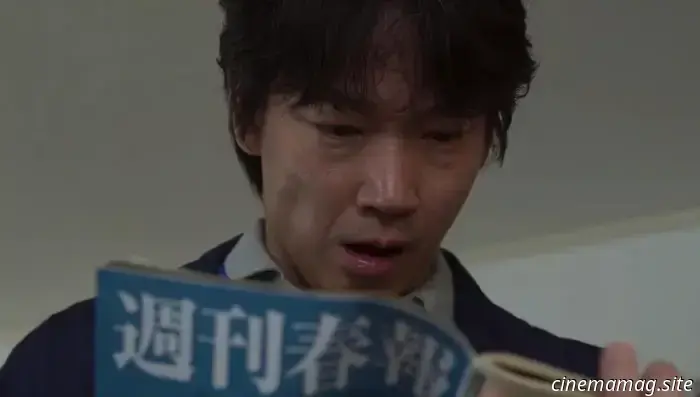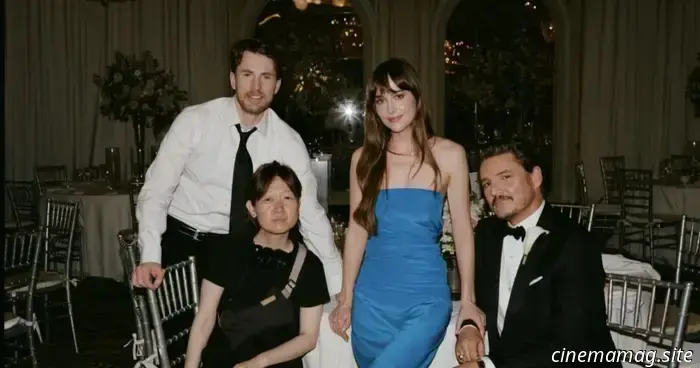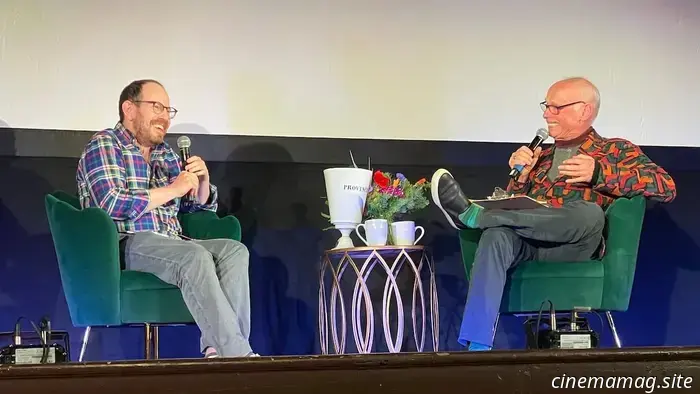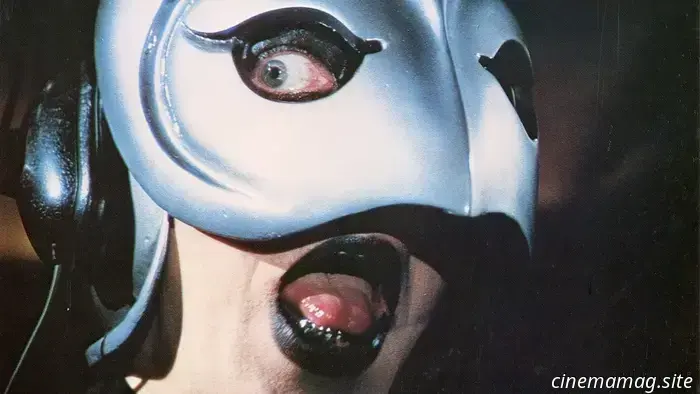
Tribeca Review: Takashi Miike’s Sham is a Courtroom Procedural in the Vein of Clint Eastwood.
Sham is a workmanlike procedural that leans more towards the tone of a Clint Eastwood drama than the chaotic thrillers often linked to acclaimed director Takashi Miike. It is surprisingly direct. The plot revolves around a teacher accused of mistreating a student and his struggle to exonerate himself. Similar to Eastwood’s narratives, the emphasis lies on the flawed protagonist, Seiichi Yabushita (Go Ayano), an elementary school instructor who shows bias towards Takuto (Miura Kira), a boy of mixed Japanese-American descent. In the opening scene, he comes home on a rainy night in 2002 for a parent-teacher meeting with Ritsuko Himuro (Ko Shibasaki), the mother, and makes some inappropriate remarks regarding the child’s “mixed blood.”
This dynamic continues in the classroom where Seiichi reprimands the boy for not acting quickly enough. While this part of the narrative is clear-cut, the methods he employs are questionable—did he engage in a Pinocchio (pulling the boy's nose) or a Bunny (lifting him by his ears)? The film begins with Ritsuko’s testimony, framing everything as if it unfolded in plain sight. Shortly after, Seiichi is seen by the school administration, and he later takes out his frustrations on Takuto during their walk home, resulting in a PTSD diagnosis and a suicide attempt.
What ensues showcases Seiichi’s efforts to restore his reputation, which has been damaged by a local journalist. The trial takes place in a civil court rather than a criminal one, yet it carries similar repercussions, leading to Seiichi’s expulsion from a profession he cherishes due to false accusations.
The film’s structure is quite distinct, as Miike utilizes his own style of psychological thriller to set the stage for ominous developments. The anticipated violence and bloodshed are mostly limited to the opening scene, teasing viewers with the expectation of darker themes. What follows is a procedural that gradually deconstructs that narrative, allowing the imperfect but innocent teacher to learn a valuable lesson. The film refrains from pushing certain subjects too hard; while it’s reasonable for Ritsuko to question her son’s teacher’s intentions after discussing “tainted blood” and World War II, this concern is quickly sidelined as he endeavors to clear his name.
Although Sham may not represent Miike’s greatest achievement in his extensive filmography of over 60 works (some years featuring multiple releases), it is skillfully made and contains a quiet intensity. The focus is less on Takuto, who is exploited throughout the ordeal, and more on Seiichi’s quest for vindication. Miike presents a deceptively simple premise, with only a handful of moments allowing Seiichi’s frustration to fully surface, such as when he is confronted by a reporter in the rain. By avoiding clichés, Sham can be interpreted as either a direct drama that does not exploit its “based on a true story” aspect to delve into a wider range of themes or as a skillfully minimalistic piece from a master exploring new stylistic elements.
Sham premiered at the 2025 Tribeca Festival.
Other articles
 “The Film Reflects Reality”: Celine Song Discusses Materialism, Divine Love, and Self-Worth
Love is treated as a commodity in the second feature from Celine Song, who wrote and directed Past Lives. Dakota Johnson portrays Lucy, a matchmaker for a high-end dating service. Financial issues led to her split with John (Chris Evans), an actor facing challenges in his career. Harry (Pedro Pascal), a financier, presents her with the prospect of a lifestyle filled with extraordinary wealth. Romantic triangles often tend to
“The Film Reflects Reality”: Celine Song Discusses Materialism, Divine Love, and Self-Worth
Love is treated as a commodity in the second feature from Celine Song, who wrote and directed Past Lives. Dakota Johnson portrays Lucy, a matchmaker for a high-end dating service. Financial issues led to her split with John (Chris Evans), an actor facing challenges in his career. Harry (Pedro Pascal), a financier, presents her with the prospect of a lifestyle filled with extraordinary wealth. Romantic triangles often tend to
 Ari Aster and John Waters on Standing Firm - PIFF 2025
Ari Aster and John Waters talked about the importance of not compromising at the Provincetown International Film Festival.
Ari Aster and John Waters on Standing Firm - PIFF 2025
Ari Aster and John Waters talked about the importance of not compromising at the Provincetown International Film Festival.
 Plainclothes Wins Award for Best Narrative Feature at Provincetown International Film Festival - MovieMaker Magazine
Plainclothes, the first feature film by director Carmen Emmi, received the Audience Award for Best Narrative Feature at the Provincetown International Film Festival.
Plainclothes Wins Award for Best Narrative Feature at Provincetown International Film Festival - MovieMaker Magazine
Plainclothes, the first feature film by director Carmen Emmi, received the Audience Award for Best Narrative Feature at the Provincetown International Film Festival.
 NYC Weekend Preview: Barry Lyndon, John Cazale, A Theater Close By, Gloomy Week & More
NYC Weekend Watch is our weekly summary of repertory screenings. Roxy Cinema will feature The Matrix Reloaded and In the Spirit on 35mm this Friday, with In the Spirit also being shown again on Saturday; a screening of Barry Lyndon will take place on Sunday. Film Forum will present all five films starring John Cazale, as well as a 4K restoration of Shall We Dance?, showcasing Masayuki Suo's version.
NYC Weekend Preview: Barry Lyndon, John Cazale, A Theater Close By, Gloomy Week & More
NYC Weekend Watch is our weekly summary of repertory screenings. Roxy Cinema will feature The Matrix Reloaded and In the Spirit on 35mm this Friday, with In the Spirit also being shown again on Saturday; a screening of Barry Lyndon will take place on Sunday. Film Forum will present all five films starring John Cazale, as well as a 4K restoration of Shall We Dance?, showcasing Masayuki Suo's version.
 Paul Williams is working on a stage musical adaptation of Phantom of the Paradise.
Phantom of the Paradise, the 1974 cult classic directed by Brian de Palma, reimagined Phantom of the Opera and featured the legendary songwriter Paul Williams in the role of the
Paul Williams is working on a stage musical adaptation of Phantom of the Paradise.
Phantom of the Paradise, the 1974 cult classic directed by Brian de Palma, reimagined Phantom of the Opera and featured the legendary songwriter Paul Williams in the role of the
Tribeca Review: Takashi Miike’s Sham is a Courtroom Procedural in the Vein of Clint Eastwood.
A competent procedural that resembles a Clint Eastwood film more than the chaotic thrillers typically linked to the renowned director Takashi Miike, Sham is unexpectedly direct. The plot centers around a teacher who faces allegations of mistreating a student and his subsequent struggle to vindicate himself. Similar to an Eastwood drama, the emphasis
